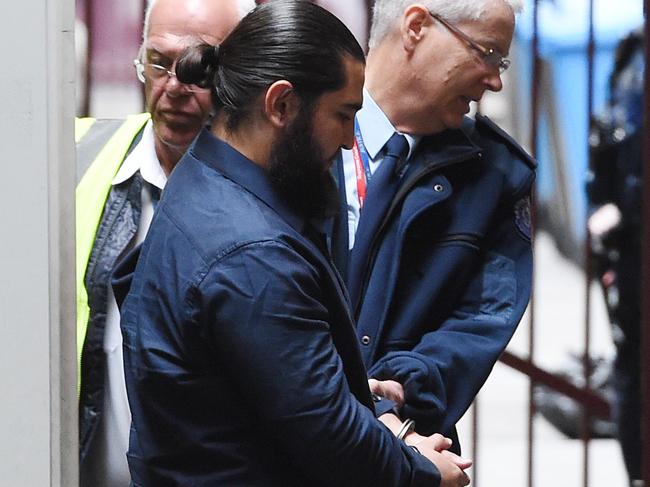High-risk terrorism offenders due to be released from jail soon
With 15 jihadis due to be freed, police are boosting resources and new laws will go to Parliament to give extra control powers.
Behind the Scenes
Don't miss out on the headlines from Behind the Scenes. Followed categories will be added to My News.
Exclusive: Fifteen high-risk terrorism offenders will be freed from jail in the next five years, as authorities ramp up their enforcement and legislative response to meet the ongoing risk.
The growing problem of what to do with Islamic State sympathisers who have completed their sentences but still pose a risk has seen new legislation introduced to allow police to seek extended supervision orders to more tightly control those released for up to three years after their jail terms have ended.
And police are closely shadowing those already on the streets with three quarters of the high-risk terrorism offenders released last year rearrested and charged with breaching their 12-month control orders.
Australian Federal Police have established an Enduring Risk command team, formed investigative teams in Victoria, New South Wales and the ACT and sent additional resources to regional areas to monitor the activities of potentially dangerous convicted terrorists.
One source said police now considered management of high-risk terrorism offenders something that had to be considered “over their lifetime’’ rather than just a matter of arresting and prosecuting them.


Of the six people charged with breaching their control orders since July last year, five have been publicly identified: three of Melbourne’s so-called “tinnie terrorists’’ Paul Dacre, Antonio Granata and Murat Kaya, Sydney Islamic State sympathiser Radwan Dakkak, and “Bonnie and Clyde’’ jihadi bride Alo-Bridget Namoa, of Sydney.

Most were charged with relatively minor matters such as using a mobile phone or internet provider in breach of their orders, but the charges show how closely they are being watched by police.
An AFP spokesman told News Corp that as well as eight control orders obtained against those who had finished their sentences last year, the AFP had also been granted, for the first time, a successive interim control order against one individual.
Police had also been granted an interim order against one individual who remained in custody. That person is Abdul Nacer Benbrika, the spiritual leader of a group of al-Qaeda-aligned terrorists who plotted to attack landmarks in Melbourne and Sydney in 2005.
Benbrika is the only person in Australia subjected to a continuing detention order, which has seen him detained beyond the end of his 15-year sentence.
The AFP spokesman said of the six people charged with breaching their control orders since July 2020, three were remanded in custody and three granted bail.


“The AFP is aware of 15 high-risk terrorist offenders who are currently serving a sentence of imprisonment and are due for release between now and 2026,’’ he said.
He said police had established a new Enduring Risk Investigations stream within the Counter Terrorism and Special Investigations Command, which had dedicated teams to monitor high-risk terrorist offenders.
“A national coordination team is located in AFP headquarters in the ACT to manage Commonwealth agency relationships, policy consultation and reporting while providing ongoing assistance to the NSW and Victoria HRTO teams,’’ the spokesman said.
“Additional resources have also been dedicated to regional locations in order to enhance capabilities to manage HRTOs across all jurisdictions.’’
Authorities’ concerns about the dangers posed by convicted terrorists after their release have been borne out in the UK, where two terror attacks were carried out by men shortly after their release from jail.
Usman Khan, 28, killed two people at London Bridge in December 2019, where he was attending a conference for supposedly-rehabilitated offenders. He was shot dead by police.
Sudesh Amman, 20, knifed several people before he was shot dead on a south London street in February 2020, days after he was released from a bail hostel. The police who killed him were part of a surveillance team following him.
More Coverage
Originally published as High-risk terrorism offenders due to be released from jail soon





